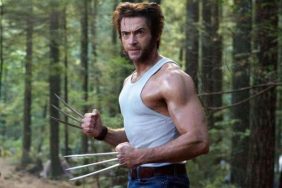As more than one actress, actor and cultural critic pointed out during the #OscarSoWhite furor, the issue has almost nothing to do with awards and everything to do with opportunity. Actors of color simply don’t get the range of opportunity that white actors and actresses do. Even thespians of color who score Oscar nominations – and the rare win – find themselves scrambling for work to a far greater extent than their similarly applauded white counterparts.
Proof of that can be found in the career trajectories of Barkhad Abdi and Dwight Henry. Somali-American Abdi scored a Best Supporting Actor nomination for his role in the 2013 film Captain Phillips. His debut acting job, it snared him a BAFTA. Henry, whose heartbreaking turn as the embattled father in 2012’s Beasts of the Southern Wild dazzled critics (he won an NAACP Award) and also was his very first acting gig ever. (He owned and ran a bakery before that.) Each man’s filmography following their breakout roles has been skimpy at best.

From “Wolf Who Cried Boy.” Photo by Wallace Michael Chrouch.
It’s therefore (almost) an embarrassment of riches to have them both turn up in the new short film Wolf Who Cried Boy. Their characters Reggie (Henry) and Koney (Abdi) flank that of Liam (Torrey Whigfield,) a poor white kid without family or resources, and whose tale this really is. Co-written and co-directed by Luke Jaden and Cort Johns, the Detroit-set Wolf casts the Motor City’s well-documented deterioration as a character in its own right in this tale of poor scrap dealers battling over metal parts in the struggle just to live. The film is crisply shot by Mike Berlucchi, whose camera captures the stubbornly undefeated spirit of characters who’ve almost been defeated. The film has an ambiguous ending, but that ambiguity creates in the viewer a subset of questions unintended by the filmmakers – namely how and why actors of the caliber of Henry and Abdi (especially Henry, who is barely used) get so little work that a modest short becomes one of the rare opportunities to see either.








